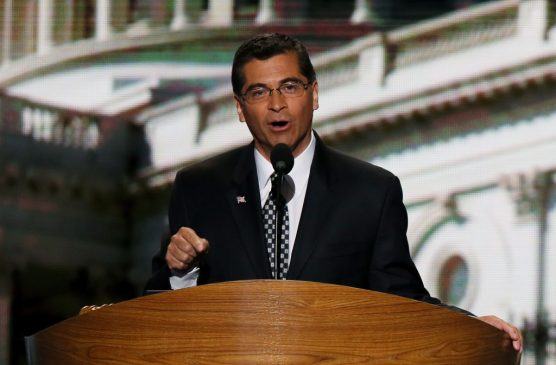By Matthew Renda
SANTA CLARA, Calif. (CN) – Press and free speech advocates blasted California Attorney General Xavier Becerra on Monday over his approach to government transparency and law enforcement accountability.
“I think the Attorney General’s office has behaved disturbingly and inappropriately,” said David Snyder, the director of the First Amendment Coalition, a California-based nonprofit dedicated to government transparency and press freedom.
Snyder took part in a panel discussion held at Santa Clara University on Monday afternoon, talking about Becerra’s attempt to stop the University of California, Berkeley, School of Journalism from publishing stories after they obtained the records detailing thousands of infractions committed by police officers, retired police officers and police officer applicants.
John Temple, the director of investigative reporting at the UC Berkeley School of Journalism, said he and two student journalists were given records by the Peace Officer Standards and Training (POST) – a commission in California that oversees police conduct and training standards – after they filed a records request.
“We started asking questions about the records and we were certainly not ready to publish a story when in came a letter from the Attorney General’s Office,” Temple said.
Becerra told Temple and his associates that POST’s release had been inadvertent and demanded the journalists return or destroy the records or be subject to prosecution.
“I found it hilarious that the government was threatening to prosecute us for possessing documents that the government sent to us,” Temple said.
But Snyder said Becerra’s recent poor track record regarding transparency extends to a policy he advocated in response to Senate Bill 1421.
SB 1421, which took effect Jan. 1, mandates the disclosure of internal police department reports related to officer misconduct in the areas of use of force, sexual wrongdoing and dishonesty.
Snyder noted police unions opposed the law, claiming it only applies to records created after the law took effect. The unions asked the California Supreme Court for an advisory opinion reflecting their view, which the justices rejected.
Numerous media outlets sought records once the measure took effect Jan. 1, but police unions filed suits in Contra Costa, Los Angeles, Orange, San Bernardino and Ventura counties to block the requests.
A California appeals court ruled March 29 that all records of the types of police misconduct spelled out by SB 1421 should be released, signifying a death knell for the unions’ efforts.
“The overall message is that the unions’ message has failed again and it is only a matter of time before the records are released,” Snyder said.
In the meantime, Becerra issued an advisory statement saying until the issue is resolved by the courts, police departments do not have to respond to records requests. That prompted the First Amendment Coalition to sue the attorney general in San Francisco Superior Court.
“The attorney general’s position is not really defensible as a legal matter, and it has also had the broader consequence of causing police departments that would have otherwise complied with the law to shut down and stop producing records,” Snyder said.
Daniel Sheehan, a constitutional law attorney who worked on many notable First Amendment cases including the Pentagon Papers, said it is important to understand that Becerra’s resistance to transparency and hostility to the press – as exemplified by his threat to prosecute journalists for possessing government records – comes at a time when the president of the United States routinely calls the press “the enemy of the people.”
“The freedom of the press is in great jeopardy right now,” Sheehan said.
Pratheepan Gulasekaram, of Santa Clara Law, noted that while Becerra is credited by progressives as having a sterling record “this is one odd area where the attorney general is deeply anti-progressive.”
Temple said while UC Berkeley has not taken legal action against Becerra, the journalism school has no intention of destroying or returning the records of police officer arrests and “will continue to do our jobs.”
Like this:
Like Loading...
Related





 Tweet This
Tweet This Facebook
Facebook Digg This
Digg This Bookmark
Bookmark Stumble
Stumble RSS
RSS


























REAL NAMES ONLY: All posters must use their real individual or business name. This applies equally to Twitter account holders who use a nickname.
0 Comments
You can be the first one to leave a comment.